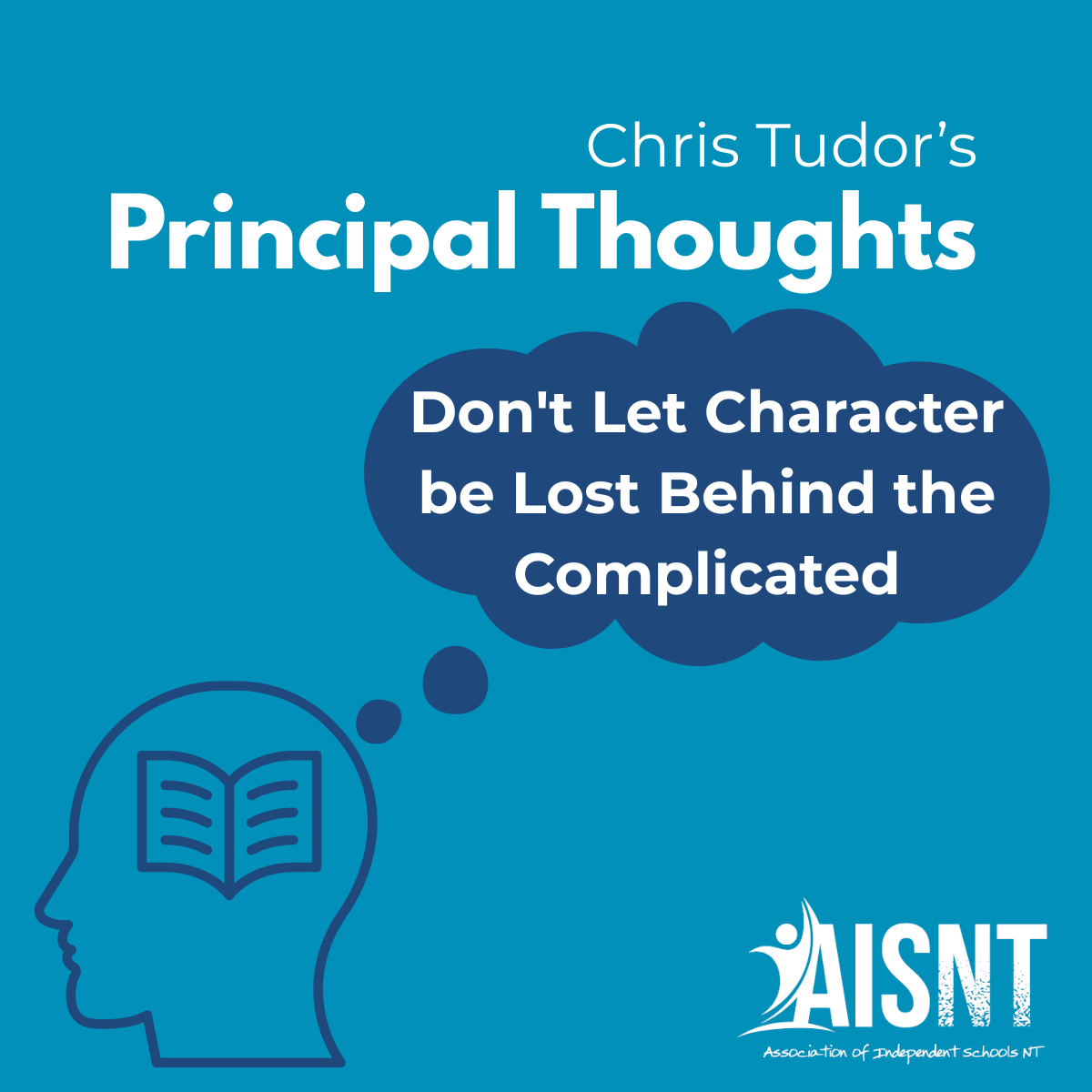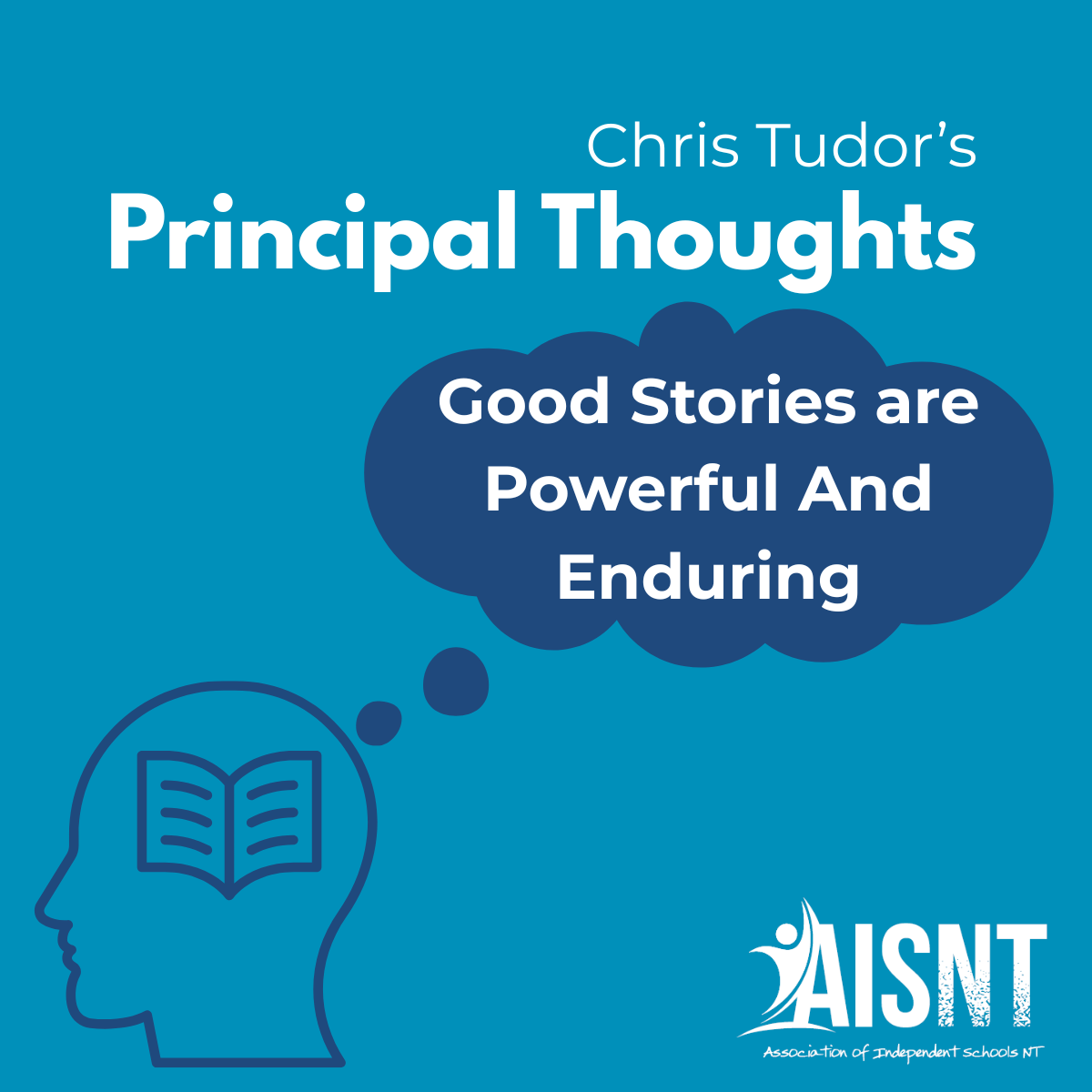Rites of Passage
Experiences which students see as significant and which contribute to their growth as human beings. I now define rites of passage much more broadly than I used to. Now, to me, they are important events that students can “hang their hats on” and feel proud that they have completed.
Well this happens to be Principal Thoughts 20 which for me is a milestone. I’m not sure why. Maybe these 20 stories are a Rite of Passage for me in some way.
What creates a Rite of Passage? Is it the celebration of occasions that divide easily by 5 or 10. Maybe these were the two easiest math’s tables to learn! Special birthday parties are celebrated for 30, 40, 50, and often getting a mention are 60, 70etc. Years of marriage that are well known are: 30-Pearl, 40-Ruby, 50-Gold, and 60-Diamond. 45 often gets a mention - it is Sapphire and 55 which is Emerald. I confess to not really being familiar with the others such as Citrine for 13, Aquamarine for 19, or Steel for 11. The importance of these is not because of their mathematical beauty but their real value is in their significance for the people concerned. If the people do not find them significant, even if they are mathematically neat, tidy and easy to remember, then they are hardly a Rite of Passage.
But times are dynamic - change is ever present. What was a Rite of Passage in the past may not exist in the same way now. 50 years ago a child became an adult at 21, an awkward number mathematically but then this was changed to 18 in 1974. (This is not a number that divides evenly by ten so there is clearly a weakness in my minor thesis).
For me 18 was important, not because I was becoming an adult like today but because this was when I left school and when I got my license. I became an adult at 21. But into this continuum crept another landmark, 20, (readily divided by 10) for this was when I had to register for National Service, when the marble for my birthday went into a barrel from which emerged the birthdays of the boys (remember not adults and men until 21) who were to be called up into the army. 20 was a time of anxious contemplation because being called up could well result in being sent to the Vietnam War. I wasn’t called up. Fortunately the marble with my birthday on it wasn’t drawn out. In fact February 9th, 10th, 11th and 13th were all drawn out and mine is on the 12th. Nevertheless going through this anxious and complicated time was for me a rite of passage. My mother was hugely relieved, as I was, and she went out immediately and brought a lottery ticket to celebrate.
These events were all Rites of Passage for me. Clearly there were many other Rite of Passage which became pivotal in my life’s experience and certainly my memory now. My first day at school was not all that one would desire. I made such a fuss that my new grade 1 teacher ( I started in year 1) sent for a grade 6 male teacher who threatened to belt me if the “fuss” didn’t stop! My how times have changed! This day, which had to be endured, was a Rite of Passage for me though I didn’t particularly enjoy my first four years at school.
In grade 5 I went to a new school in Melbourne I hour’s travel from home which consisted of a walk, a train ride and then tram ride. I was 10 at the time and expected to be able to undertake this safely. There was pride generated in managing this and in its own way created confidence. Another Rite of Passage completed. In year 10 I joined the school army cadets and was issued with a fully functional. 303 Lee Enfield rifle which was to be kept at home, except on cadet afternoons. The rules relating to being responsible for this rifle were: don’t travel on public transport with the bolt in (the bolt was necessary to fire it) keep it clean, don’t point it at anyone and on camp never fire blank ammunition at anyone because “blanks can kill at 8 paces”. Undertaking this responsibility successfully was another major Right of Passage. Later that year, still aged 15, I went on a 17-day camp in the Victorian Alps and this included a 7 day 160 kilometer hike without teachers. I can’t say that I enjoyed the camp fully. It was too long for me though I returned each year as a leader and Outdoor Ed became one of my chief loves as an educator. Of course there were many, many other Rite of Passage and the more there were the richer the school experience was and the fact that I can remember so many of them today shows that they were worth doing and helped to shape who I am.
As a School Principal travelling many years away from these rich experiences I desperately wanted the students I had in my charge to undertake rich and useful Rite of Passage. Their school years would then be useful and memorable to them and indeed give them skills, understanding and wisdom which would underpin their journey as they forged and wandered their way along life’s track. To simply repeat the experiences that I had at the same age or indeed in my earlier years of teaching, without critical analysis, would deprive them of experiences which related to their rapidly changing world. Lack of relevance can be the “kiss of death” to any program. On the other hand not everything needs to be new and valuable truths must always prevail. What is central to the offering must pass the test of critical thinking, analysis and ongoing understanding and where necessary, important change. Issuing the students with operational rifles or expecting them to undertake a 160km hike without staff would probably give a Principal a nervous breakdown today.
Being very aware of the great importance of Rite of Passage, the program of the school for which I was responsible included “heaps” as indeed there would be in your schools. Some examples included a very vibrant national and international exchange program, the participation in national conferences by students and indeed in helping to run such conferences. For a student to leave the Centre of Australia and spend ten weeks in the Middle East, South America, Africa, India, USA, Scandinavia, Canada etc. is a huge experience.
International travel being negotiated by themselves, new lands, new languages, new cultures, new religions is life changing. Another was community service and at one stage many students worked to help build our chapel. Some students tackled community service projects overseas. In addition there were international and national sporting trips. Annually there was a school musical and various plays. There were many many more experiences. How powerful it is for a student to participate in a variety of these. For some they may have only performed in one musical, but they had this experience which for them was a Rite of Passage. I have known year 11 students deciding to participate in the musical for the first time because they didn’t want to leave school without this experience. Making a speech at Assembly or indeed at Presentation night and it may only be one, tackling a task at school which demands real leadership and responsibility, playing in a band, participating in the school camps, carrying a heavy pack and managing a 48 hour solo, experiencing sports days and tackling significant aspects of the subjects in the general curriculum are all enriching.. Even if diverse experiences are not billed as a Rite of Passage they certainly can be.
What a Principal should remember is that not all will successfully complete a particular Right of Passage, but in such cases the greatest learning may be gained out of trying but failing. However the experiences must be offered. One of the most exciting parts of a Principal’s job is to reflect on the richness of the school’s program making sure that the experiences offered have amongst them powerful and useful Rite of Passage that help students grow into well balanced, well rounded citizens, enthusiastic to forge their own valuable journey through life with the confidence to tackle something new if they wish to. Rite of Passage are indeed pots of gold that all students should truely value. However there are students who are reluctant to tackle them. Being aware of such students is so important as is then encouraging them into experience rather than them avoiding what might be useful to them.
Chris Tudor
AISNT Historian & Principal Liaison



